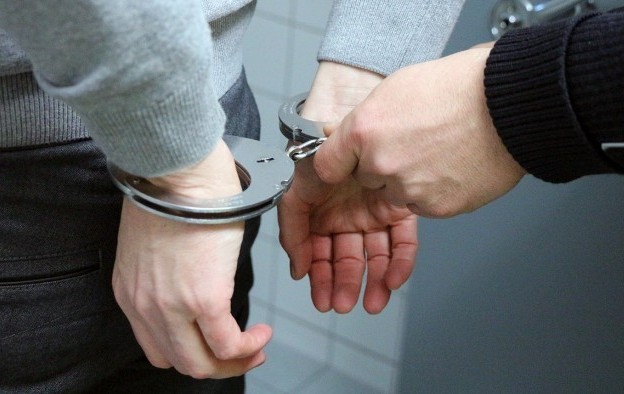Fake chip haul, loan-shark reports up 2019: Macau govt
Mar 06, 2020 Newsdesk Latest News, Macau, Top of the deck

The total face value of counterfeit gaming chips detected either in use or attempted use within Macau during 2019 reached nearly HKD18.5 million (US$2.4 million), the highest tally in the past three years, according to the latest data released by the Office of the Secretary for Security. The pace of increase in reported gaming-related crimes also accelerated in 2019, driven by usury cases and scams.
Macau police uncovered the use of 352 counterfeit gaming chips during 2019, according to the data released on Friday by the Secretary’s team. In 2018 and 2017, the total face value of counterfeit gaming chips found in use in Macau was respectively nearly HKD5.9 million and nearly HKD9.9 million.
The office did not provide a breakdown on the distribution of the 2019 fake casino currency in terms of number of cases and casino venues affected. But it noted that a large number of the gaming currency tokens – 176 of them – carried a face value of HKD100,000. Another 158 had a face value of HKD5,000; and the rest were denominated in either HKD10,000, HKD1,000 or HKD500.
The fake casino chips found in the city accounted for most of the fake currency detected in the city in 2019.
During that year, Macau’s Judiciary Police received reports on – and conducted investigations into – a total of 2,157 gaming-related crimes. That was a 14.5-percent rise when compared to the 1,884 gaming-related crimes recorded in 2018, according to the latest police data. The 2018 gaming-crime tally had represented a 2 percent year-on-year increase from 2017.
The city’s police forces label cases as gaming-related when they take place inside a casino or in its surroundings.
More gaming crimes
In 2019, the Macau police investigated a total of 602 cases of gaming-related usury, an activity more commonly known as loan-sharking. The tally represented a 8.7-percent rise when compared to the previous year. The suspects and alleged victims in most of the cases were people from outside Macau, the Secretary for Security’s office noted in its Friday summary of the crime figures.
A total of 353 cases of gaming-related suspected unlawful detention was recorded in 2019. Of that total, 345 cases were associated with loan-sharking activities, the office’s data showed. In one case in which the police intervened in May, an alleged victim was discovered dead in a local inn. The person had reportedly been illegally detained and physically assaulted by the captors, in relation to an unpaid gambling debt.
The Secretary’s office noted in the Friday announcement that “cross-border criminal groups” accounted for some of the gaming-related loan-sharking cases seen last year. The office pledged the Macau authorities would continue to work with police forces in neighbouring regions and countries to combat such criminality. Officials also highlighted Macau’s collaboration with the police in neighbouring Zhuhai, in Guangdong province, in disrupting two “cross-border” loan-sharking groups in October and November. The action involved the confiscation of respectively HKD5.5 million and HKD400,000 in alleged criminal funds.
The city’s police forces also investigated a total of 456 gaming-related alleged scams in 2019, which was 209 cases more than in 2018, the office said. Individuals that fell victim to such scams were mostly trying either to change genuine money, and were passed counterfeits in return, or were trying to transfer money and were conned by people running illicit money exchange operations, the office stated.
Related articles
-
 Macau average 5-star 1H rate 96pct of...
Macau average 5-star 1H rate 96pct of...Jul 22, 2024
-
 3 Macau ops had back office IT hit by...
3 Macau ops had back office IT hit by...Jul 22, 2024
More news
-
 Donaco EBITDA up y-o-y to above US$4mln...
Donaco EBITDA up y-o-y to above US$4mln...Jul 26, 2024
-
 HK listed Palasino upgrades Czech...
HK listed Palasino upgrades Czech...Jul 26, 2024
Latest News
Jul 26, 2024
Border-casino operator Donaco International Ltd has achieved a 164.17-percent year-on-year increase in its latest quarterly group earnings before interest, taxation, depreciation and amortisation...Sign up to our FREE Newsletter
 (Click here for more)
(Click here for more)
Pick of the Day
”We’ve got more traction outside of Macau at the moment. But Macau’s going be a bigger focus for us”
David Punter
Regional representative at Konami Australia
Most Popular
 Sheraton brand to exit Londoner Macao, to be Londoner Grand July 25, 2024
Sheraton brand to exit Londoner Macao, to be Londoner Grand July 25, 2024  Macau regulator probes unlicensed gaming agents July 24, 2024
Macau regulator probes unlicensed gaming agents July 24, 2024  Philippines gives 20k aliens in POGOs 60 days to leave July 25, 2024
Philippines gives 20k aliens in POGOs 60 days to leave July 25, 2024  Philippines-listed DigiPlus says not affected by POGO ban July 24, 2024
Philippines-listed DigiPlus says not affected by POGO ban July 24, 2024  Sands China 2Q EBITDA down q-o-q amid low hold, renovation July 25, 2024
Sands China 2Q EBITDA down q-o-q amid low hold, renovation July 25, 2024






